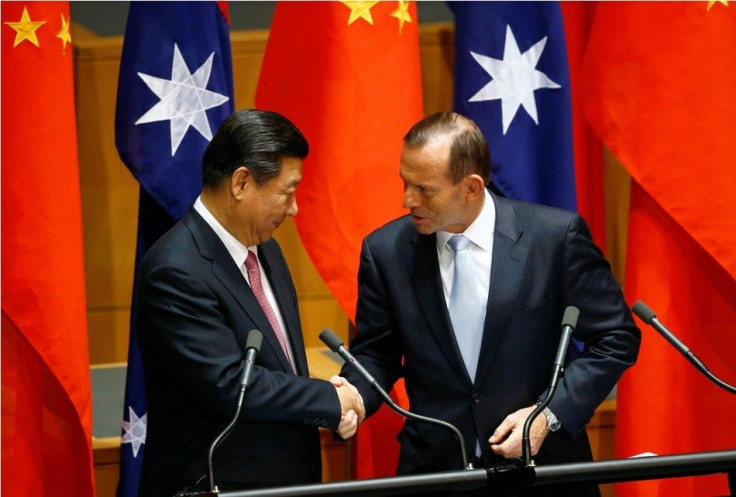China Approves Much-Awaited Free-Trade Deal With Australia

China agreed to make a much-awaited free-trade agreement with Australia. Service professionals and farmers in Australia are expected to benefit tremendously from the deal.
Chinese President Xi Jinping's green signal for the deal marked the most ambitious bilateral free-trade agreement the Asian giant ever made, The Sydney Morning Herald reported. According to Australian Trade Minister Andrew Robb, it was China's best ever effort on services "by a country mile." Australia has long been criticised for its close relations with Japan and the United States that may have distanced itself from China. However, Jinping apparently dismissed such speculations by approving the deal.
Jinping was quite generous in praising Australia during his speech. This was another unprecedented effort from China for any Western country. The Chinese president called Australia as a country of regional as well as international "importance" and "influence." He also said that Australia was more significant than what it might appear to be at times. Jinping's warmth toward Australia proved several critics wrong that the relation between the countries may have been jeopardised.
Australia is going to benefit significantly from the trade agreement. One of the sectors which will secure major gains because of the deal is agriculture. Australian meat and dairy products will have equal importance like those of New Zealand. Dairy products' tariffs are going to be phased out in four to 11 years. Wine tariffs will be gone in four years and beef tariffs in nine years. Chine spent $9 billion in buying Australian agricultural products, The Age reported.
Tariffs for all resources and energy products like coking coal, gold and iron ore will be removed. Tariffs for non-coking coal will be removed in two years while it will be removed in four years for pharmaceuticals. China spent more than $85 billion for Australian resources, energy and manufactured products in 2013. Australia's pharmaceutical companies enjoy their biggest market in China which spent $559 million in 2013 for those products. Australian insurance companies are going to have access to the third-party liability motor vehicle market in China. The Asian super-power has also granted a Renminbi quota for Australia that is going to let financial institutions in the country to invest offshore Chinese currency in financial products from China.
Contact the writer: s.mukhopadhyay@ibtimes.com.au





















